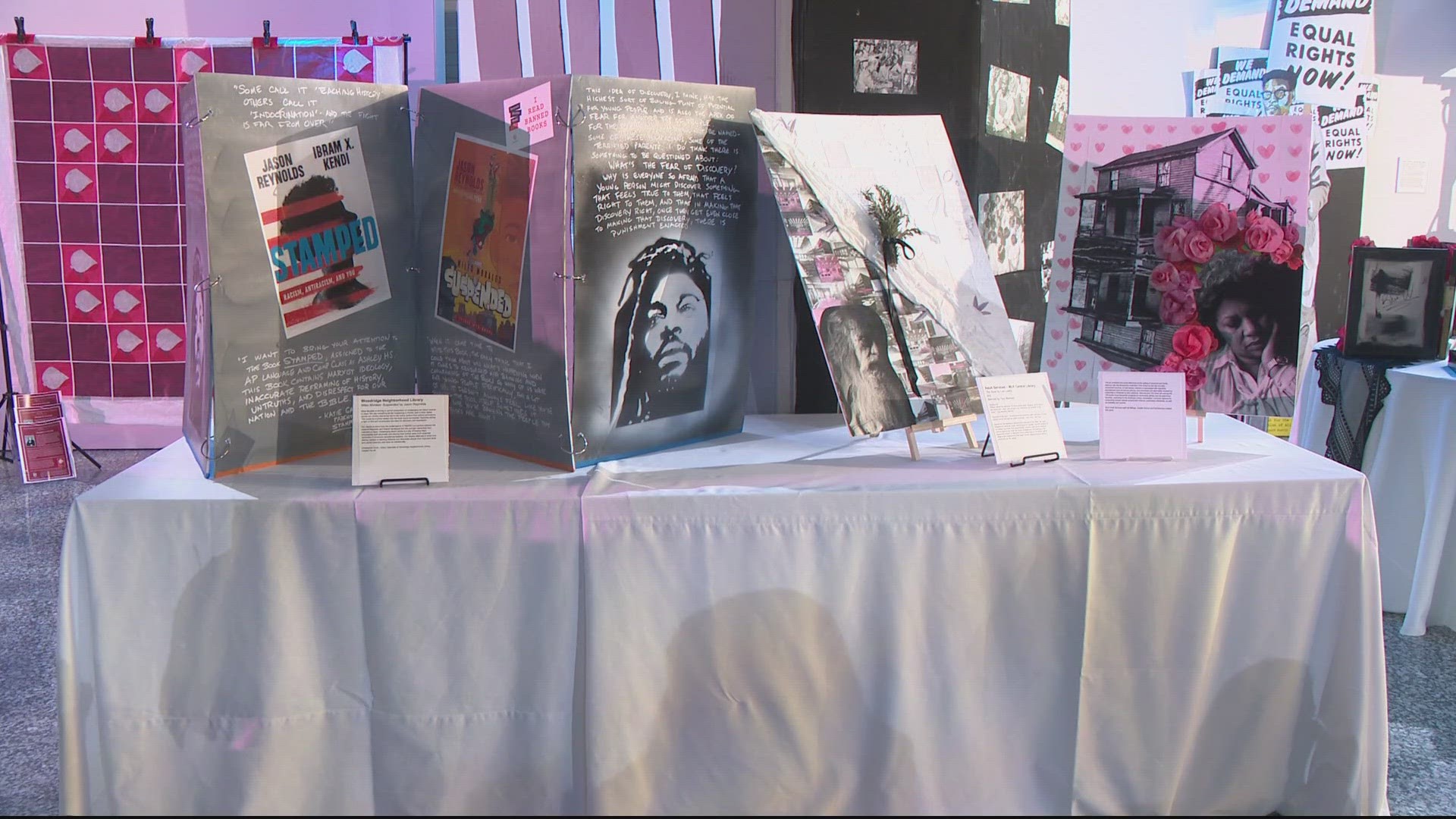WASHINGTON — It's Banned Books Week, and the DC Public Library is celebrating by highlighting its commitment to Freedom of Speech.
Banned Books Week was first started in 1982 in response to a rise of people challenging books in libraries, bookstores and schools. This year, the event will be held Sept. 22 to 28.
Between Jan. 1 and Aug. 31, the American Library Association (ALA) tracked 414 attempts to censor library materials and services, which included challenges against more than 1,100 unique titles. Many of these challenges focus on books related to LGBTQIA+ subjects or communities of color.
While so far this year, the ALA has seen a decline in attempts to censor or ban books when compared with last year, the organization said the documented attempts still far exceed the numbers before 2020. Additionally, the ALA said there have been instances of censorship where books are placed in restricted areas, not used in library displays and otherwise hidden or kept off limits.
DC Public Library marked Banned Books Week by asserting its role as a "First Amendment institution." The library's theme for the week is "Freed Between the Lines: Find Your Story," emphasizing the library's commitment to protecting freedom of speech.
"DC Public Library does not ban books," said Richard Reyes-Gavilan, executive director of the DC Public Library. "Yet the surge in censorship attempts across the country threatens our ability to access diverse viewpoints, learn and grow. Book bans infringe upon our First Amendment rights and are fundamentally opposed to the principles upon which our nation is founded."
According to data collected by the ALA, censorship at public libraries increased by 92% over the previous year. In 2023, 54% of all book-banning challenges took place at public libraries.
The ALA says pressure groups initiated 21% of those challenges. Prior to 2020, the ALA says a majority of challenges were brought by single parents, but recent data shows only 24% of challenges are initiated by parents.
"Recent censorship data are evidence of a growing, well-organized, conservative political movement, the goals of which include removing books about race, history, gender identity, sexuality, and reproductive health from America's public and school libraries that do not meet their approval," the ALA website reads.
In 2014, the ALA recorded 11 attempts to restrict access to books in Virginia, with 11 titles challenged. At that same time, there were eight attempts to restrict access to eight titles in Maryland. However, in 2023, Virginia saw 25 attempts to restrict access to 387 titles and Maryland saw 13 attempts to access 148 book titles.
During Banned Books Weeks, DCPL is encouraging people to check out commonly banned books and attend programs discussing the impact of censorship.
DCPL shared the ALA's list of the most commonly banned books in 2023, along with how many copies the library has available to check out in various formats:
- "Gender Queer" by Maia Kobabe: 252 total circulations (135 physical, 117 digital) Reasons: LGBTQIA+ content, claimed to be sexually explicit
- "All Boys Aren't Blue" by George M. Johnson: 134 total circulations (55 physical, 79 digital) Reasons: LGBTQIA+ content, claimed to be sexually explicit
- "This Book Is Gay" by Juno Dawson: 26 total circulations (5 physical, 21 digital) Reasons: LGBTQIA+ content, sex education, claimed to be sexually explicit
- "The Perks of Being a Wallflower" by Stephen Chbosky: 151 total circulations (65 physical, 86 digital) Reasons: Claimed to be sexually explicit, LGBTQIA+ content, rape, drugs, profanity
- "Flamer" by Mike Curato: 52 total circulations (19 physical, 33 digital) Reasons: LGBTQIA+ content, claimed to be sexually explicit
- "The Bluest Eye" by Toni Morrison: 449 total circulations (193 physical, 256 digital) Reasons: Rape, incest, claimed to be sexually explicit, EDI (equity, diversity, inclusion) content
- (tie) "Tricks" by Ellen Hopkins: 0 circulations[ (No copies available) Reasons: Claimed to be sexually explicit, drugs, rape, LGBTQIA+ content
- (tie) "Me and Earl and the Dying Girl" by Jesse Andrews: 60 total circulations (20 physical, 40 digital) Reasons: Claimed to be sexually explicit, profanity
- "Let's Talk About It" by Erika Moen and Matthew Nolan: 7 total circulations (7 physical, 0 digital - No digital copy available for purchase) Reasons: Claimed to be sexually explicit, sex education, LGBTQIA+ content
- "Sold" by Patricia McCormick: 9 total circulations (9 physical, 0 digital - No digital copy available) Reasons: Claimed to be sexually explicit, rape
"The First Amendment is built on the principle that truth emerges from the open competition of ideas in society," a DCPL press release reads. "Books serve as a vital medium for this exchange."

